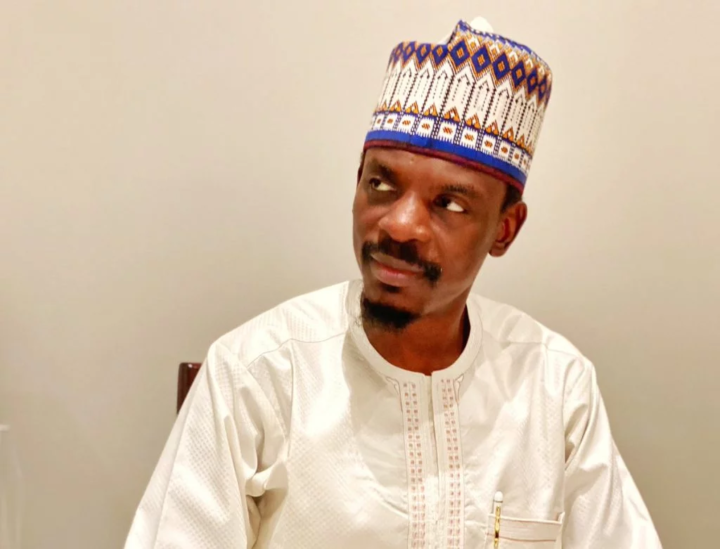In a bold statement on Saturday, Bashir Ahmad, a former media aide to ex-President Muhammadu Buhari, confidently declared that Nigeria is winning the war against terrorism.
His declaration came in response to the elimination of the notorious terrorist leader, Sani Wala Burki, by Nigerian military forces in Katsina State.
The death of Burki is seen as another victory in the ongoing struggle to restore peace and security to regions long plagued by insurgency and terrorism.

Sani Wala Burki, a notorious terrorist leader responsible for numerous attacks and disruptions, was killed by Nigerian troops in Katsina State.
Burki’s death represents a significant blow to the network of terrorists operating in the region, and it marks a critical turning point in Nigeria’s counterterrorism efforts.
Bashir Ahmad, expressing his satisfaction at the development, urged the military to continue intensifying their efforts to completely eradicate terrorism in Nigeria.
Taking to social media platform X (formerly known as Twitter), Ahmad wrote, “Happy to read that another notorious terrorist leader, Sani Wala Burki, has also been eliminated in Katsina.
Nigeria is clearly winning this war against terror. Let our troops increase the pressure until they’re all eradicated, so our farms can be cleared for the next farming season.”
His call to action reflects the growing hope among Nigerians that the military’s efforts will not only restore peace but also allow for the revival of agricultural activities in regions where farmlands have been abandoned due to the threat of terrorist violence.
The killing of Burki follows a series of successful military operations across Nigeria’s northern states, where terrorist activities have severely undermined local economies and displaced large populations.
On the same day, the Nigerian Army eliminated another high-profile target, Kachallah, during an operation in Zamfara State.
These military victories continued with the neutralisation of Halilu Sububu and his men by the Nigerian Air Force (NAF) Special Forces in the Mayanchi area of Zamfara.
These consecutive operations highlight the growing competence and effectiveness of the Nigerian military in tackling both terrorism and banditry.
The ability to locate, engage, and neutralise key terrorist leaders is a testament to the improved intelligence and coordination within the security forces.
Despite these successes, Nigeria’s fight against terrorism is far from over.
One of the most notorious bandits still at large is Turji Bello, a leader responsible for numerous attacks and abductions.
Chief of Defence Staff, General Christopher Musa, has vowed to bring down Bello, who remains a major threat in the region.
Turji recently claimed to have seized two Mine-Resistant Ambush Protected (MRAP) vehicles belonging to the Nigerian Army, adding a layer of complexity to the ongoing fight.
The military, however, downplayed the significance of the incident, stating that the vehicles were demobilised due to difficult terrain, and not captured in active combat as Turji had suggested.
Nevertheless, Turji’s actions serve as a reminder that Nigeria’s war against terrorism requires sustained pressure and commitment from the armed forces.
One of the most pressing issues resulting from the terrorist insurgency has been its impact on agriculture and local economies.
Terrorist groups have frequently targeted rural farming communities, leading to widespread displacement of farmers and the abandonment of vast tracts of arable land.
This has had a devastating effect on food security in northern Nigeria, a region that has historically been a major contributor to the country’s agricultural output.
Bashir Ahmad’s reference to farms being cleared for the next farming season reflects the hope that military victories will soon allow displaced farmers to return to their land.
The restoration of security in these regions is essential not only for food production but also for the economic stability of millions of Nigerians who depend on agriculture for their livelihoods.
The recent successes of the Nigerian military can be attributed to improved strategy and the increased use of intelligence-driven operations.
Over the years, the Nigerian armed forces have refined their tactics, incorporating aerial reconnaissance, special forces, and ground operations to target high-profile terrorist leaders.
The use of these coordinated efforts has allowed the military to strike terrorist camps and hideouts with greater precision, reducing the ability of these groups to regroup and carry out further attacks.
Moreover, the military has strengthened its collaboration with local communities, using intelligence from residents to track the movements of terrorists.
This has been instrumental in identifying and eliminating key figures such as Burki, Kachallah, and Sububu.
While the recent military successes are encouraging, experts caution that the fight against terrorism in Nigeria must be sustained over the long term.
Terrorist groups in the region have shown resilience, often retreating into difficult terrains where they can regroup and launch sporadic attacks.
To achieve a lasting victory, the Nigerian military will need to maintain its offensive, continue improving its intelligence capabilities, and work closely with local communities to ensure that the threat of terrorism is permanently eradicated.
In conclusion, Nigeria’s recent victories against high-profile terrorists such as Sani Wala Burki are a significant step forward in the nation’s fight against terrorism.
However, the challenges posed by figures like Turji Bello and the broader terrorist network remain formidable.
With sustained military pressure, continued intelligence collaboration, and a focus on restoring peace and security to affected regions, there is growing optimism that Nigeria can eventually win the war on terror and rebuild its local economies.
Support InfoStride News' Credible Journalism: Only credible journalism can guarantee a fair, accountable and transparent society, including democracy and government. It involves a lot of efforts and money. We need your support. Click here to Donate
